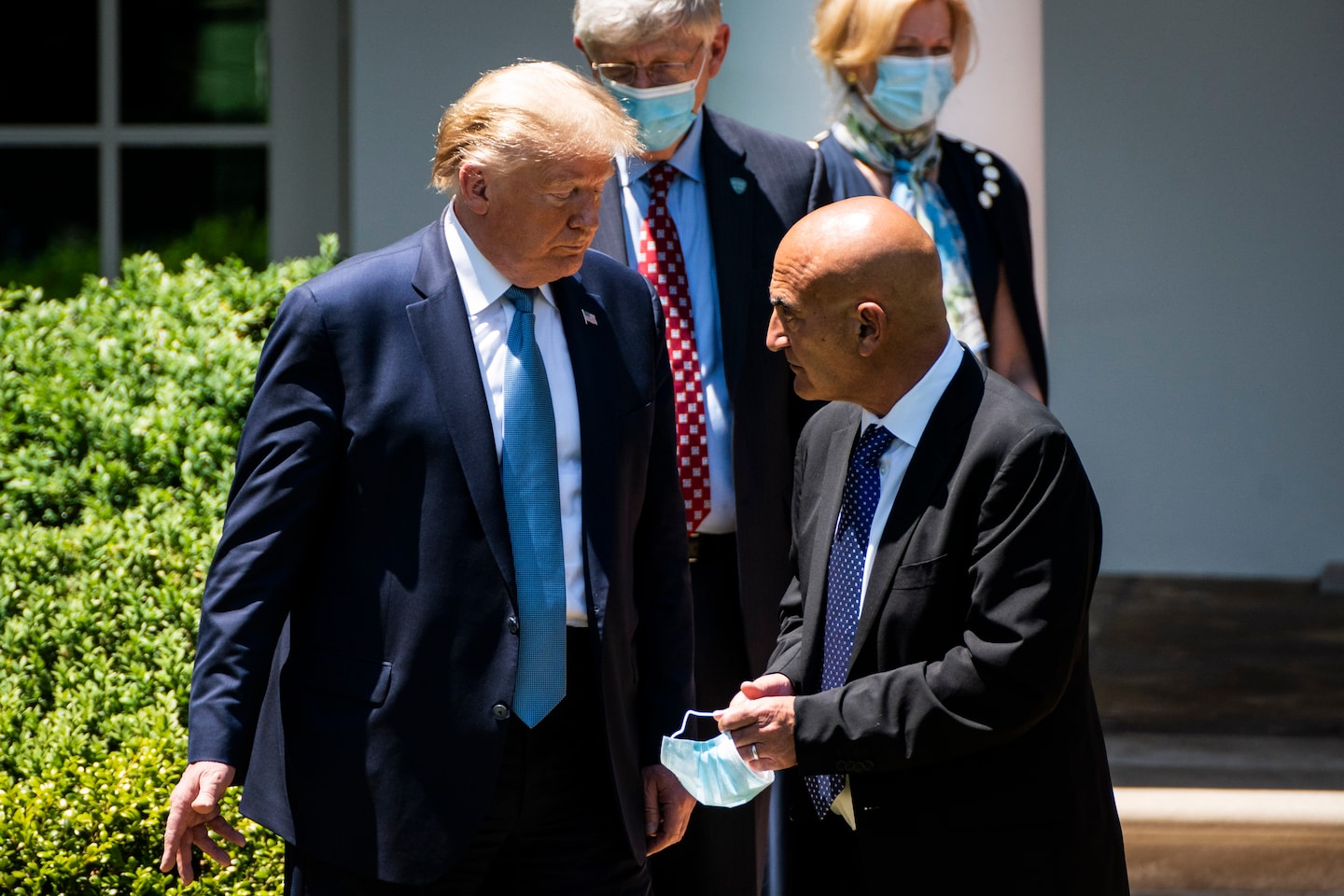Warp Speed chief calls pre-election vaccine ‘extremely unlikely’

“There is a very, very low chance that the trials that are running as we speak could [be completed] before the end of October and therefore there could be — if all other conditions required for an Emergency Use Authorization are met — an approval,” Slaoui said. “I think it’s extremely unlikely but not impossible, and therefore it’s the right thing to do to be prepared, in case.”
The timeline included in the federal government’s guidance for states has raised concerns about political pressure.
But Slaoui insisted that politics are not involved in the vaccine production process.
“Every day that we can be faster, we try to be faster,” he said. “For us, there is absolutely nothing to do with politics, and many of us may or may not be supportive of this administration — it’s irrelevant, frankly.”
He said he thinks the CDC guidance was about preparedness.
“There is a possibility that the clinical trials, albeit very low as I said before, extremely low, but there is a possibility that the trials [could end] before the end of October. It would be irresponsible not to be ready if that was the case,” Slaoui said.
Slaoui told NPR that he “firmly” believes there will be a vaccine available before the end of 2020, with enough doses to immunize the highest-risk groups, such as elderly populations and front-line workers.
“We may have enough vaccine by the end of the year to immunize probably I would say between 20 and 25 million people,” he said. Then, vaccine dose manufacturing would be ramped up to have “enough vaccine to immunize the U.S. population by the middle of 2021.”
In a separate interview Thursday with Science Magazine’s Jon Cohen, Slaoui said he would not tolerate political influence in the vaccine approval process.
“I would immediately resign if there is undue interference in this process,” he said, adding: “I have to say there has been absolutely no interference.”
Trump has placed heavy pressure on the Food and Drug Administration to approve treatments and vaccines, raising alarm among scientists. In the case of hydroxychloroquine, an anti-malarial drug Trump championed to treat the novel coronavirus despite a lack of evidence, the FDA was forced to withdraw its earlier emergency-use authorization in June after clinical trials showed no benefit from the drug.






